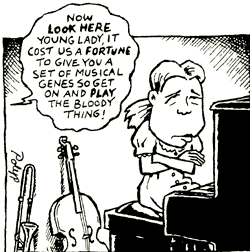
This is a link to the Policy manual of the Parole Board of Canada, citing the conditions for pardoning someone who served their sentence.
http://pbc-clcc.gc.ca/infocntr/policym/polman-eng.shtml#annex_a1
In looking at the eligibility table for pardon applications, it lists the time period after which applications for pardon can be submitted. This includes serious personal injury offenses that required imprisonment of 2 years or more which requires a 10 year waiting period.
Does this mean that even serious criminals can apply for a pardon after a 10 year wait?
What are the chances that their pardon will be granted ?
It would be great if those of you out there that may be more familiar with the parole and pardon system can shed more light on this, or better still, come join us at the discussion!
Quite apart from the particular details of the Canadian system of granting pardons, it is interesting to discuss how we should deal with those among us that have broken the rules we set up for our society.
On the one side, we have portions of the society that feel that criminal records should be permanent. After all, what is the use of a criminal record that can be erased or concealed when criminal record checks are used to prevent these previous transgressors from taking up positions that involve trust with children, significant assets, or other forms of public trust?
We also have people that would rather have "criminals" be thrown behind bars forever and would even favor capital punishment as a way of getting rid of the problem.

On the other side, we have the argument that we should be reforming rather than punishing, that we should be aiming at reintroducing these "criminals" to become productive member of society.
http://www.pardons.org/about_us.html
But what of the safety risk to the rest of society in attempting these reforms and do reform always work?
Are there "hard-core" criminals that are not reformable? What do we do with them and how do we decide who they are?
From the general public's everyday life perspective, is criminal record a good indication of a person's character and reliability?
Is the absence or presence of a criminal record too much of a black and white test that put too much petty crimes in the black category?
If so, how do we introduce a better criteria?
It is often said that forgiveness is the victim's power to take charge and release itself of its victimized status. Without forgiveness, the wound cannot heal and the victim remains a victim.
When and under what circumstances should we forgive and forget without being naive about it?

Come Wednesday and join our discussion!





